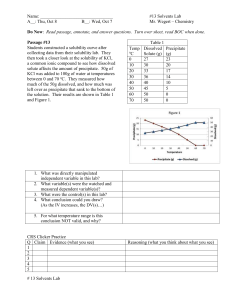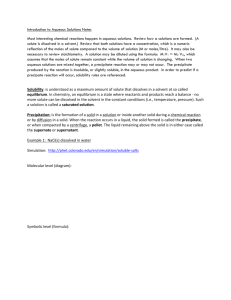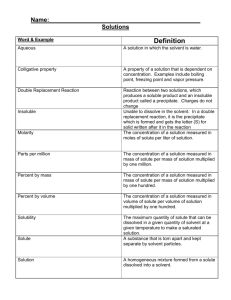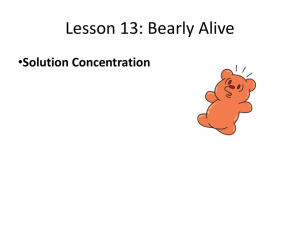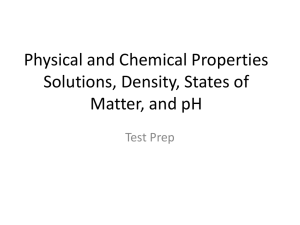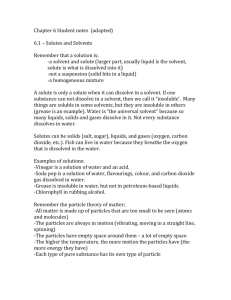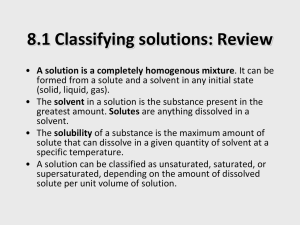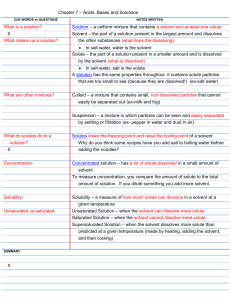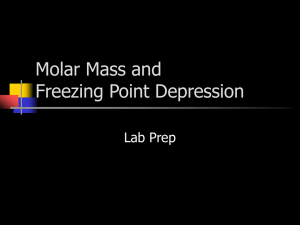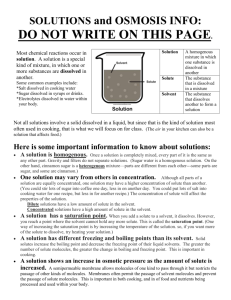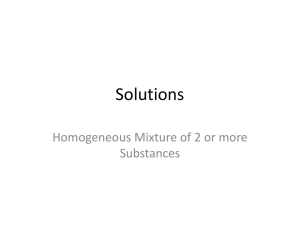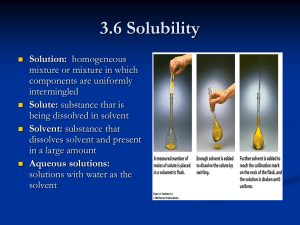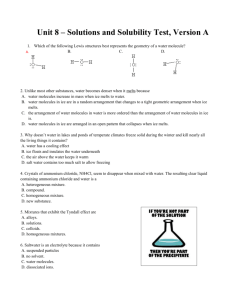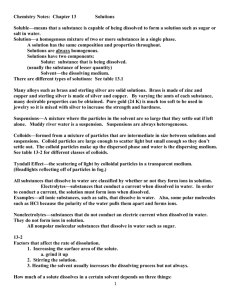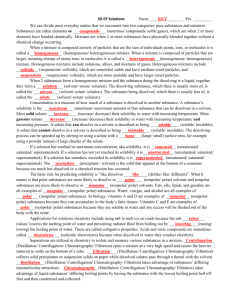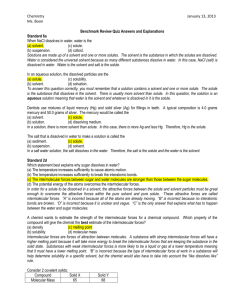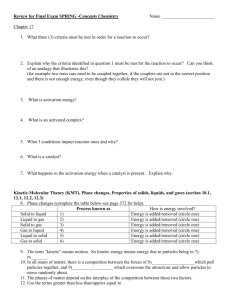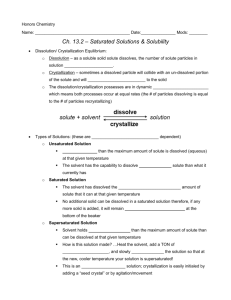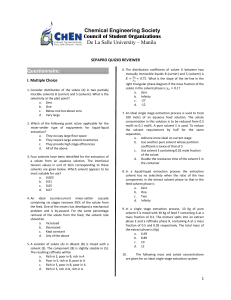Concentration and Solubility
advertisement
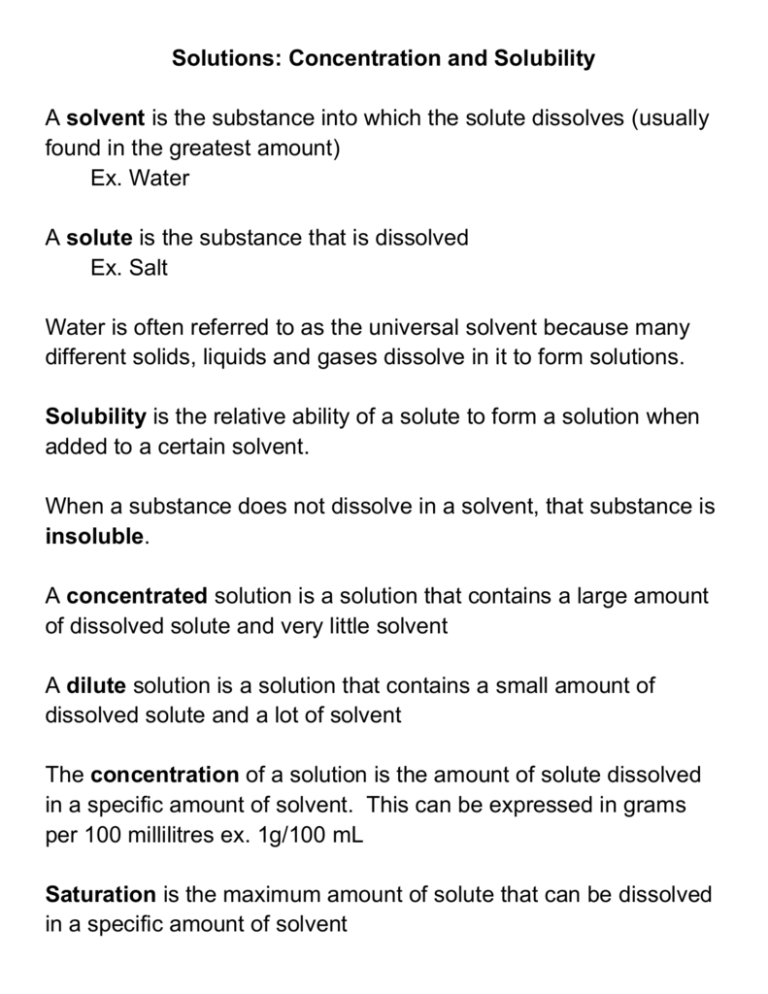
Solutions: Concentration and Solubility A solvent is the substance into which the solute dissolves (usually found in the greatest amount) Ex. Water A solute is the substance that is dissolved Ex. Salt Water is often referred to as the universal solvent because many different solids, liquids and gases dissolve in it to form solutions. Solubility is the relative ability of a solute to form a solution when added to a certain solvent. When a substance does not dissolve in a solvent, that substance is insoluble. A concentrated solution is a solution that contains a large amount of dissolved solute and very little solvent A dilute solution is a solution that contains a small amount of dissolved solute and a lot of solvent The concentration of a solution is the amount of solute dissolved in a specific amount of solvent. This can be expressed in grams per 100 millilitres ex. 1g/100 mL Saturation is the maximum amount of solute that can be dissolved in a specific amount of solvent A solution is saturated when it has been formed from the maximum amount of solute for a given amount of solvent at a certain temperature The saturation point means that no more solute can be dissolved in a fixed volume of solvent at that temperature If more solute is able to be dissolved in a solvent at a given temperature, then the solution is unsaturated A supersaturated solution contains more solute then would normally be dissolved in the solution at a given temperature Now that you are done copying, please answer #2, 3, 4 & 8 on pg. 219.
